Search Results
Showing results 1 to 20 of 36
Measuring Rules
Source Institutions
In this math activity, learners create their own units of measurement by making noodle rulers. Learners practice estimating and measuring objects using the noodle rulers .
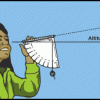
Using a Simple Astrolabe
Source Institutions
In this activity, learners use an astrolabe to measure the altitude of objects. Learners will first practice taking measurements by measuring the altitude of trees and buildings.
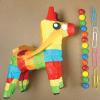
Family Math Activity: Measuring with Paper Clips and M&Ms
Source Institutions
In this activity, young learners and their caregivers use non-standard tools, like M&Ms and paper clips, to measure things around their home.
Caterpillar Measure
Source Institutions
In this activity, young learners use different-sized paper 'caterpillars' and various household items to predict and measure their height.
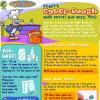
Digit's Cyber-Dough
Source Institutions
In this fun hands-on activity, learners whip up a batch of cyber-dough (play dough) using math for measurements.
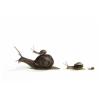
Small Snails, Enormous Elephants
Source Institutions
This activity (located on page 2 of PDF) introduces learners to the real size of animals using nonstandard measurement.
Stack-o-Pennies Shop
Source Institutions
In this math activity, learners pretend there is a special store that lets you pay for toys by their height in pennies.
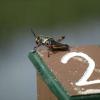
Jump Start
Source Institutions
In this movement and measurement activity, learners jump as far as they can three times, and compare their longest jump to the longest jump of their friends, classmates and/or family members.
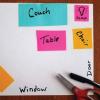
Make A Map for A Treasure Hunt
Source Institutions
In this activity, learners will explore how maps can provide information about a place and help us find our way from one location to another.
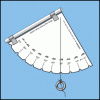
Making a Simple Astrolabe
Source Institutions
In this activity, learners make an astrolabe, a device used for measuring altitude, including the height of objects in the sky.
The Right Fit
Source Institutions
In this math activity, learners trace their hands and estimate the number of beans that can fit into their hand tracings. Then, learners glue the beans to the tracing to test out their estimations.
Growing Plants: Track Their Growth
Source Institutions
In this activity, learners will be working with predictions with a time frame of one week, or longer. Start by planting seedlings.
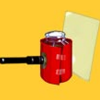
Turbidity
Source Institutions
This is an activity about turbidity, or the amount of sediment suspended in water.
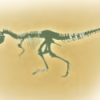
Digging Deeper!
Source Institutions
In this activity, learners explore dinosaur skeletons and anatomy. Learners make observations about a T. rex skeleton diagram and then measure the skeleton length and width.
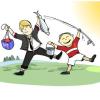
Good Catch!
Source Institutions
In this activity, learners "go fishing," then practice ruler use and size/pattern comparison with the animals they catch.
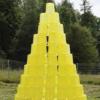
Tall Tower Challenge
Source Institutions
In this activity, learners will use their chosen material to build the tallest tower possible in under three minutes. This activity uses problem solving and fine motor skills to challenge learners.
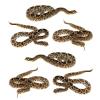
Make a Snake String & Snake Survey
Source Institutions
In this activity, learners will construct a measuring device (snake "string") to improve their observation skills.
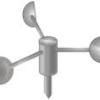
Paper Cup Anemometer
Source Institutions
In this meteorological activity, learners get to build their very own anemometer (instrument for measuring wind speed) using a paper cup.

Be A Pasta Food Scientist
Source Institutions
In this activity, learners of all ages can become food scientists by experimenting with flour and water to make basic pasta.
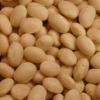
A Swell Activity with Beans
Source Institutions
In this combination chemistry and physics activity, learners explore water absorption in dried beans or peas and learn how this affects their physical properties.
